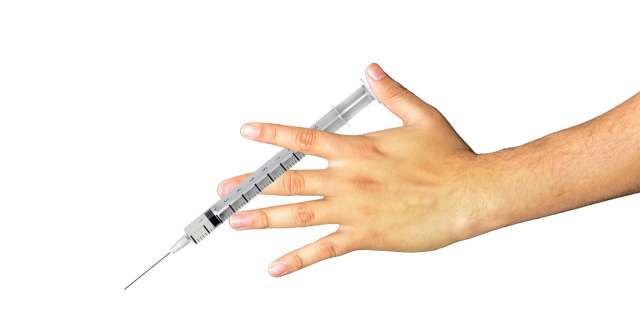CDC issued recommendations for clinicians on the CDC website at the end of June 2021, in reaction to more than a thousand reports to the Vaccine Adverse Event Reporting System (VAERS) of cases of inflammation of the heart. The CDC says that they “and its partners are actively monitoring these reports [1].”
There is a “likely association” between mRNA COVID-19 vaccines and a higher risk of rare heart inflammation in adolescents and young adults” still no recall is considered? They just keep plowing ahead.
Remember, this was an “Emergency” vaccine only for those at high risk
The COVID-19 vaccines are not approved by the FDA. They were released on an emergency basis called Emergency Use Authorizations (EUAs).
The FDA website says, “Under section 564 of the Federal Food, Drug, and Cosmetic Act (FD&C Act), when the Secretary of HHS declares that an emergency use authorization is appropriate, FDA may authorize unapproved medical products or unapproved uses of approved medical products to be used in an emergency to diagnose, treat, or prevent serious or life-threatening diseases or conditions [2].”
There is no way the authorities know what the long term side effects of these vaccines are and they are trying to entice, coerce, force by any means all people over 12 to “take the jab.”
In March 2020, the HHS Secretary “declared that circumstances exist justifying the authorization of emergency use of drugs and biological products. [3]”
Who has the most to worry about?
The heart issues predominantly affect males in the adolescent age bracket AND young adults over 16 (Wow, that could be quite a few people), more often after the second dose (still happen after the first dose?), and “Typically within several days after COVID-19 vaccination [4]” (it appears that there is no question that it’s the vaccine causing issues.)
Long term effects
Anyone who watches cable TV late at night has seen all the drug commercials. Is there one without significant side effects listed by the fast-talking announcer at the end of the commercial? Those drugs HAVE gone through a rigorous testing period, and there are still all sorts of potential issues. What about an untested drug? Maybe we’ll get lucky. How are your lotto chances?
There is no (what do they say? Scientific, I believe…) way the authorities know what the long-term side effects of these vaccines are, and they are still trying to entice, coerce, force, by any means, all people over 12 to “take the jab.”
These vaccines are untested and, at the root of it, those who take the vaccine are volunteering to be test subjects for the drug’s approval.
Recall reasons review
We have recalls in America to protect the general public from bad actors or just overlooked safety issues. Flimflam men out to hustle a buck without concern for the people they do business with or even civic-minded businesses who try to make and distribute the best product they can, sometimes just missed something important.
Bad guys and good guys
Recalls are part of modern life and can be voluntary or mandatory (enforced by the government.) Civic-minded businesses are the kind to recall voluntarily immediately. They are concerned for their neighbor. On the other hand, Flimflam men and Con artists are the kinds who need the government to step in and protect the public at large from their dangerous products.
However, some recalls are hilarious in their absurdity while, yes, there are serious and dangerous defects in others that can cause harm. Below are some of both.
- They recall cars when they hurt people or don’t operate safely.
- They recall packaged apricots for containing “undeclared sulfites.”
- They recall food when it contains “harmful bacteria.”
- They recall toys due to “choking hazards.”
- They recall chest of drawers furniture due to “tipping hazards.”
- They recall chocolate for containing “Undeclared peanut protein.”
- They even recall “duck treats” because they have the “Potential to be contaminated with Salmonella.”
Yet when there are increased “cases of inflammation of the heart – called myocarditis and pericarditis – happening after mRNA COVID-19 vaccination (Moderna and Pfizer) in the United States [5]” to adolescents and young adults, and that “U.S. scientists said on June 23 that there is a ‘likely association’ between mRNA COVID-19 vaccines and a higher risk of rare heart inflammation in adolescents and young adults [6]” still no recall is considered? They keep plowing ahead.
Recall by attrition
Maybe there’s a third way of recalling something that I overlooked. Something we call “word-of-mouth.” Just don’t buy it if it has problems. Really, just because (hate to pick on car salesmen) the car salesman says that the car is not a lemon, do you take his word for it or what your neighbor’s experience with that model is.
Perhaps “we the people” need to recall by attrition. Just don’t take it if you’re not in one of the groups of people who are “high-risk.” Even then, a person needs to consider which “poison” is best for there situation.
Imagine if bad food or cars were handled the same way
No recall. Why? Because it “affects very few people.” “It’s uncommon.” “These reports are rare, given the hundreds of millions of vaccine doses administered.” Here’s another one, “But these issues only affect those who are younger.”
OK. That’s comforting if you’re not “younger.” No, really, how many people received the vaccine under age 25? Does anybody know? I couldn’t find a definitive number (see next section.)
Think about car safety- imagine if they said that about issues in vehicles that cause recalls. “The failing brake system only affects a small percentage,” they’d say. “We’ll keep our eye on it,” they’d promise.
How about food safety? Think what people would say if all they said about issues that cause recalls was, “The deadly food poisoning only affects a small percentage. Don’t worry about it. Eat your greens.”
I don’t think that would fly.
What do they mean by “Rare”— Exactly
The CDC uses the word “rare” in their bulletins, but that depends on the point of view, I suppose. If it’s you, it means a lot.
Like I referenced above, they say, “More than 177 million people have received at least one dose of COVID-19,” but how many have received “the jab” that are in the susceptible demographic? What’s that percentage? It’s hard to find out.
The CDC itself says vaccine coverage is “lowest among adults aged 18–29 years [7].” That’s the closest I could find to get an idea of the number of those at risk of side effects of this vaccine. Unfortunately, that number was as of May 22, 2021. That same page says most people who received the vaccine were less than or equal to age 65.
I suppose we can’t know what they mean by “rare” at this point.
Notes:
- ^“COVID-19 Vaccination.” Centers for Disease Control and Prevention, 2 July 2021, www.cdc.gov/coronavirus/2019-ncov/vaccines/safety/myocarditis.html (go back ↩)
- ^Emergency Use Authorization. (2021, July 13). Retrieved from https://www.fda.gov/emergency-preparedness-and-response/mcm-legal-regulatory-and-policy-framework/emergency-use-authorization (go back ↩)
- ^Emergency Use Authorization. (2021, July 13). Retrieved from https://www.fda.gov/emergency-preparedness-and-response/mcm-legal-regulatory-and-policy-framework/emergency-use-authorization (go back ↩)
- ^COVID-19 Vaccination. (2021, July 02). Retrieved from https://www.cdc.gov/coronavirus/2019-ncov/vaccines/safety/myocarditis.html (go back ↩)
- ^Myocarditis and Pericarditis Following mRNA COVID-19 Vaccination – Myocarditis Foundation. (2021, June 22). Retrieved from https://www.myocarditisfoundation.org/myocarditis-and-pericarditis-following-mrna-covid-19-vaccination/?gclid=CjwKCAjwruSHBhAtEiwA_qCppnUQeSR95VuYVSEt5tphx2Cl4fGoaT4ccxJjTI1xA4j7Wn6nEVLhkhoCfBoQAvD_BwE (go back ↩)
- ^0. (2021). FDA to Add Warning on mRNA COVID-19 Vaccines About Rare Heart-Related Side Effect. Healthline. Retrieved from https://www.healthline.com/health-news/fda-to-add-warning-on-mrna-covid-19-vaccines-about-rare-heart-related-side-effect#What-are-the-side-effects? (go back ↩)
- ^Diesel, J. (2021). COVID-19 Vaccination Coverage Among Adults — United States, December 14, 2020–May 22, 2021. MMWR Morb. Mortal. Wkly. Rep., 70. doi: 10.15585/mmwr.mm7025e1 (go back ↩)

